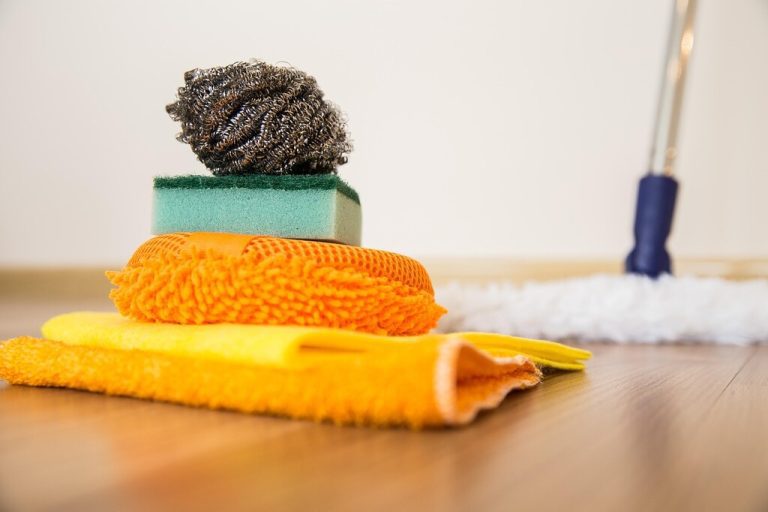Moving out of a rental property can be a stressful time, especially when it comes to cleaning up at the end of the tenancy. So, who is responsible for handling the cleaning, the landlord or the tenant? And, who pays for end-of-tenancy cleaning?
In this article, we will discuss end of tenancy cleaning legal requirements and who is responsible for end-of-tenancy cleaning. Learn is end of tenancy cleaning mandatory, end of tenancy cleaning rules, such as what areas must be cleaned, and the rights and obligations of landlords and tenants.
Stay tuned for tips on how to meet end-of-tenancy cleaning expectations and ensure the process runs smoothly.
Who is Responsible for End of Tenancy Cleaning?
Specifying end-of-tenancy cleaning requirements is essential to avoid disputes between tenants and landlords regarding end-of-tenancy cleaning obligations.
Clear agreements outlining responsibilities play a crucial role in setting expectations. Typically, tenants are expected to leave the property in the same condition as when they moved in, subject to wear and tear. Landlords, on the other hand, are responsible for maintaining the property’s overall cleanliness and ensuring it meets health and safety standards.
An inventory report is often used to document the property’s condition before and after the tenancy, helping to resolve any disputes over damages or cleanliness. To safeguard their security deposit, tenants should communicate openly with landlords and seek clarity on cleaning expectations well in advance.
a. Landlord’s Responsibilities
Landlords have specific responsibilities when it comes to End of Tenancy Cleaning outlined in the tenancy agreement to maintain the property’s cleanliness standards.
Along with cleaning duties, landlords are also responsible for assessing any damages caused during the tenancy period and ensuring they are repaired before the next tenants move in. This involves conducting thorough inspections and keeping records of any necessary repairs.
Landlords must ensure that the property is adequately insured to cover any unforeseen damages or liabilities that may arise. It is crucial for landlords to budget and plan for these potential costs to avoid financial setbacks. By upholding these obligations, landlords can provide a safe and well-maintained living environment for their tenants.
b. Tenant’s Responsibilities
Are tenants responsible for end-of-tenancy cleaning? Well, the answer is yes, including organising professional cleaning services if required.
In terms of returning the property in a pristine condition, tenants are often faced with the decision of whether to undertake the cleaning tasks themselves or hire a professional cleaning company.
So, do you have to professionally clean carpets at end of tenancy? Basically, choosing a cleaning company can save time and ensure that all areas, from carpets to windows, are thoroughly cleaned to meet the homeowner’s expectations.
Tenants must bear in mind that the cost of hiring a cleaning service may vary depending on the size of the property and the level of cleaning required.
Is End of Tenancy Cleaning Mandatory?
Understanding whether End of Tenancy Cleaning is Mandatory can help tenants and landlords adhere to legal requirements and agreements in the UK rental market.
In terms of End of end-of-tenancy cleaning, it’s essential to consider the legal implications within the context of the Tenant Fees Act 2019.
This legislation plays a crucial role in regulating tenancy agreements and ensuring fair practices between tenants and landlords. Failure to comply with mandatory cleaning requirements can lead to disputes, financial penalties, or even legal action.
It’s important for landlords to understand their obligations under the law and also to have the necessary protections in place, such as adequate landlord’s insurance, to safeguard their interests in case of any issues arising from the end of a tenancy.
End of Tenancy Cleaning Expectations
Setting clear end-of-tenancy cleaning expectations is vital for both tenants and landlords to avoid misunderstandings and disputes regarding the condition of the property. Here’s the full explanation.
What Areas Should Be Cleaned?
- Various Areas should be Cleaned during the end-of-tenancy cleaning process to ensure the property is left in a satisfactory condition as per the rental agreement.
- These areas include the kitchen where all appliances, countertops, and cabinets must be thoroughly cleaned.
- The bathrooms need special attention, focusing on the sink, toilet, shower, and any tiled surfaces.
- The living room should be vacuumed, dusted, and any upholstery cleaned.
- Bedrooms require thorough dusting, vacuuming, and changing of bed linens.
- Don’t forget to clean the windows, light fixtures, and baseboards throughout the property.
- It’s crucial to address any outstanding utilities and bills to ensure a smooth handover process.
What is Considered Reasonably Clean?
Defining what is Considered Reasonably Clean at the end of a tenancy is crucial to ensure both tenants and landlords have a common understanding of cleanliness standards.
In terms of evaluating cleanliness for a rental property, it’s essential to consider various factors. These may include the condition of appliances, floors, walls, and bathrooms.
Some tenants opt for professional cleaning services to meet the required standards. Most rental agreements specify the level of cleanliness expected upon move-out. Landlords may conduct thorough inspections to assess if the property meets these standards. In some cases, tenants might need to provide proof of cleaning, such as receipts from reputable cleaning companies. This helps in ensuring that both parties are protected and can avoid disputes regarding the condition of the property.
Can Landlords Charge for End of Tenancy Cleaning?
Understanding whether landlords can charge for end-of-tenancy cleaning is important for tenants to know their financial responsibilities and rights regarding cleaning costs.
In terms of charging tenants for cleaning services at the end of a tenancy, landlords must adhere to specific legal parameters. In most cases, landlords can deduct cleaning costs from the security deposit if the tenant has left the property in a condition that exceeds normal wear and tear.
This deduction must be reasonable and well-documented, as landlords are not allowed to charge tenants for routine cleaning tasks that are part of their responsibilities. Landlords’ insurance may also play a role in covering cleaning costs in certain situations, depending on the policy provisions.
End of Tenancy Cleaning Rights and Obligations
End-of-tenancy cleaning rights and obligations outline the responsibilities and entitlements of both tenants and landlords to ensure a fair and transparent cleaning process. A more detailed explanation follows.
a. Tenant’s Rights
Tenants have specific end-of-tenancy cleaning rights, including the right to dispute cleaning costs and ensure the property meets hygiene standards.
It is important for tenants to review the tenancy agreement thoroughly to understand the rights and obligations set out, including who pays for end-of-tenancy cleaning. Communication with the landlord or property management is crucial to clarify any uncertainties or expectations related to the cleaning process.
By maintaining clear communication, tenants can avoid disputes over deposit deductions for cleaning costs. They have the right to request details of any deductions made from their deposit in accordance with the tenancy agreement.
b. Landlord’s Obligations
By law, landlords have end-of-tenancy cleaning obligations in terms of ensuring the property is properly cleaned at the end of the tenancy as per the tenancy agreement.
One of the critical aspects of this responsibility is providing tenants with precise guidelines on the required standard of cleanliness expected upon moving out. It is common practice for landlords to request a thorough cleaning of the property, including all living spaces, appliances, and fittings. Landlords need to ensure that any damages or discrepancies are documented in inventory reports to facilitate a smooth transition between tenancies. Having appropriate insurance cover can protect landlords in case cleaning or repair costs exceed the tenant’s deposit limit.
c. What to Do If There Are Disagreements?
Handling disagreements related to end-of-tenancy cleaning requires open communication between tenants and landlords to resolve issues amicably and fairly.
When disputes arise, it is crucial to carefully review the terms of the tenancy agreement to identify responsibilities regarding costs and damages. It is advisable to document the condition of the rented property before and after the tenancy period to provide evidence.
If disagreements persist, seeking mediation or arbitration can be beneficial in reaching a resolution outside of court. Keeping a professional and respectful demeanour throughout the process can help maintain a constructive dialogue and prevent escalation.
Tips for a Smooth End of Tenancy Cleaning Process
Implementing Tips for a Smooth End of Tenancy Cleaning Process can help both tenants and landlords streamline the cleaning activities and ensure a hassle-free property handover.
One of the key aspects to focus on during end-of-tenancy cleaning is the selection of the right cleaning equipment and products. Investing in quality cleaning tools such as a powerful vacuum cleaner, microfiber cloths, and eco-friendly cleaning solutions can make a significant difference in the effectiveness of your cleaning process.
Creating a detailed checklist can help you stay organised and ensure that no area is overlooked. Cleaning costs can add up, so it’s wise to plan ahead and budget for any professional services or specialised products you may need to achieve the desired level of cleanliness.
Our comprehensive explanation above will hopefully answer your question about who pays for end-of-tenancy cleaning.
For a stress-free move and a spotless property, trust TEKA Cleaning’s end of tenancy cleaning services. We cater to tenants, landlords, and property managers, ensuring that every corner of the property is thoroughly cleaned and restored to its original condition. Whether you’re moving out and want to secure your deposit or preparing a property for new tenants, our expert team is here to help.
Book now or give us a call at 01233 751 544 to make your move stress-free. Let TEKA Cleaning handle the cleaning while you focus on your new beginning.
Read also:











